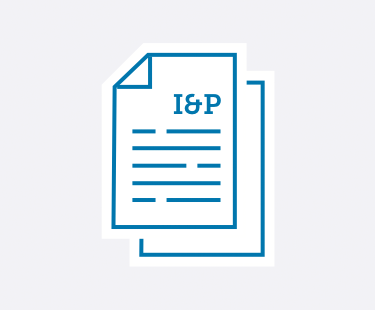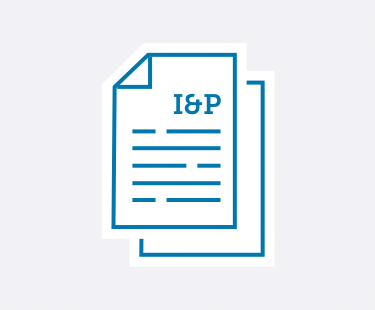

Learn practical strategies to handle emerging trends and leadership challenges in private schools.
No matter if you’re a School Head, Admission Director, Development Director, Board member, or any other private school administrator—Ideas & Perspectives®, ISM’s premier private school publication, has strategic solutions for the pervasive problems you face.
- Tuition not keeping pace with your expenses? In I&P, explore how to use strategic financial planning to create your budget and appropriately adjust your tuition.
- Enrollment dropping off? Discover how to implement the right admission and enrollment management strategies that engage your community—and fill your classrooms.
- Trouble retaining teachers? Learn how you can best support your teachers using ISM’s Comprehensive Faculty Development framework. Your faculty members will become more enthusiastic about their roles—which ultimately improves student outcomes.
- Fundraising campaigns not as successful as you’d hoped? Implement ISM’s practical advice and guidance to build a thriving annual fund, construct an effective capital campaign, and secure major donors—no matter your community size or location.
- Not sure how to provide professional development—for you and your staff? Learn ways to develop and fund a successful professional development strategy. You can improve teacher-centered satisfaction and growth, which in turn strengthens student-centered learning.
- Problematic schedule? You can master the challenges of scheduling with the help of ISM’s practical advice, based on our experience with hundreds of schools and our time-tested theories.
- And so much more.
I&P has shared targeted research, up-to-date insight, and sound theory with school leaders since 1975. More than 8,500 private school decision-makers find the answers to their schools’ administrative and governance matters in our advisory letter. We give you the strategic answers you need.
As an ISM Silver or Gold member, you not only receive issues online and in print 10 times a year, but you have access to 900+ articles in our web archive. Need help? It’s at your fingertips! Learn more and sign up for ISM's membership here.
Search
See the articles from our latest issue of Ideas & Perspectives.
How Do You Set the Annual Fund Goal?
Volume 35 No. 10 // August 2, 2010
In its work with schools, ISM often hears Development Directors say that the annual fund goal is determined by the Board and School Head, based on the “gap” between expenses and expected revenues (often referred to as the “plug number”) with little consideration of data gathered by the Development Office. Further, the performance of Development Offices is frequently evaluated based on the school’s ability to meet these goals. In ISM’s experience, budgeting for gift income and evaluating the development program in this way provides an inaccurate picture of the school’s financial resources and the true fund-raising potential of the school’s constituents.
1. Already a member? Click here to login.
2. Not a member? Click here to become a member.
3. Not sure? We'll help you figure it out.
Internal Marketing Strategies for Your Summer Program
Volume 35 No. 10 // August 2, 2010
As the Summer Program Director, you want to attract as many participants as you can. Because the program (with the exception of those that offer credit classes) does not have admission requirements, is oriented toward enrichment rather than academics, and is open to almost any student interested in a rewarding summer adventure, you can accommodate as many students as space allows.
1. Already a member? Click here to login.
2. Not a member? Click here to become a member.
3. Not sure? We'll help you figure it out.
Integrating Faculty Into the Advancement Process
Volume 35 No. 10 // August 2, 2010
ISM has defined advancement as “the process by which a school supports admission, development, and marketing/communication programs.” To stress its direct relationship to faculty, we will now add another aspect to this definition—“to provide the resources for strong and sustained student performance, enthusiasm, and satisfaction.”
1. Already a member? Click here to login.
2. Not a member? Click here to become a member.
3. Not sure? We'll help you figure it out.
The Carver Model of Governance: An ISM Perspective
Volume 35 No. 9 // July 2, 2010
Since some private-independent school Boards use, or are considering, the Carver Model of Governance, and since ISM is occasionally asked its view on that model’s efficacy in the private-independent school context, we offer the following opinions.
1. Already a member? Click here to login.
2. Not a member? Click here to become a member.
3. Not sure? We'll help you figure it out.
How to Scrutinize an Insurance Policy
Volume 35 No. 9 // July 2, 2010
As the de facto “risk manager” at most private-independent schools, the Business Manager is usually responsible for ensuring that the school maintains insurance coverage that is appropriate to its many legal, financial, and environmental risks. The legal vehicle through which we transfer risk (or fail to) is the insurance policy. It’s critical to know how to “read” and have a general understanding of your policy. This article offers several critical recommendations to help ensure that your insurance policies cover what you need covered—and that these items are spelled out appropriately in the written insurance contract(s).
1. Already a member? Click here to login.
2. Not a member? Click here to become a member.
3. Not sure? We'll help you figure it out.
Enter, Stay, Leave: A New Insight
Volume 35 No. 8 // June 9, 2010
ISM last wrote about the motivations that parents and children have for entering and staying at a school in 1994. The original research was done over 30 years ago—it doesn’t seem to have changed in essence, although some nuances are becoming evident. Every year, we interview hundreds of parents and students face-to-face and almost always ask them questions about their motivation to attend a school, their motivation for staying, and what has the most impact on them. Our 2010 parent survey (with an n = 14,207) shows that 42.13% of our parents earn over $175,000 annually; 35.8% earn between $75,000 and $125,000; and 14.06% earn less than $75,000. Across all socio-economic bands, the answers to those questions are strikingly similar and can almost be scripted.
1. Already a member? Click here to login.
2. Not a member? Click here to become a member.
3. Not sure? We'll help you figure it out.
The Headship: Are You Leading Yet?
Volume 35 No. 8 // June 9, 2010
William Johnson, CEO of the $10 billion food company H. J. Heinz, is quoted in Newsweek as follows: “I started out under the assumption that what got me to the position of CEO would work when I became CEO, and that is running the business and execution. That’s not my job as CEO. My job is to lead the people and manage the process. It took me a couple of years to learn that, and [when I did] I stepped back from the operations of the company and really began to focus on leadership, on having the right people in the right place, and on making sure people were properly motivated, incentivized, and directed.”1
1. Already a member? Click here to login.
2. Not a member? Click here to become a member.
3. Not sure? We'll help you figure it out.
Health Care Reform: What Schools Need to Know Now
Volume 35 No. 7 // May 10, 2010
In March 2010, Congress passed and the president signed into law the Patient Protection and Affordable Care Act (PPACA),1 one the most far-reaching pieces of federal legislation in decades. As the final version (amended by a reconciliation bill) is well over 2,000 pages and, importantly, is phased in over the next four years, it will take some time before all elements and consequences of the legislation are fully assessed. ISM will continue to write on PPACA as new provisions come into effect. At this time, however, we would like to share with schools the requirements and changes2 that they will need to comply with between now and the end of 2010.3
1. Already a member? Click here to login.
2. Not a member? Click here to become a member.
3. Not sure? We'll help you figure it out.
ISM’s Two Development Stability Markers: How Do You Score?
Volume 35 No. 7 // May 10, 2010
An essential element of accountability in the Development Office is the capacity to evaluate whether objectives are being achieved, and to measure progress toward those ends. The following table suggests a framework you can use to think through the metrics that define and measure success. You, as the Development Director, can use these metrics to analyze the state of your operations, to establish your baseline, and to assess your forward progress and communicate this to the School Head, the Board, and the school community. They will also aid you in planning and managing your operations.
1. Already a member? Click here to login.
2. Not a member? Click here to become a member.
3. Not sure? We'll help you figure it out.
ISM Stability Marker No. 1: Five Observations and Comments on ‘Cash Reserves’
Volume 35 No. 6 // April 19, 2010
Since ISM first began its quinquennial analysis of the prime correlates of a school’s ability to sustain excellence in its student programs—known as the ISM Stability Markers™ —the marker known as “cash reserves” has placed either first or second in each analysis. And while “cash reserves” is a convenient way to reference the item, this marker is actually a formulaic mix of reserves, (low or no) debt, and endowment. Now holding the top rank for the ninth straight year, reserves/debt/endowment is always a focal point of Trustees’ discussions—and properly so, as they move into strategic planning with ISM. Following are five observations and comments, each one grounded in Trustees’ questions and pertinent to ISM Stability Marker No. 1. You, as a leader on your Board of Trustees, are encouraged to think carefully through the implications of each of these five.
1. Already a member? Click here to login.
2. Not a member? Click here to become a member.
3. Not sure? We'll help you figure it out.


